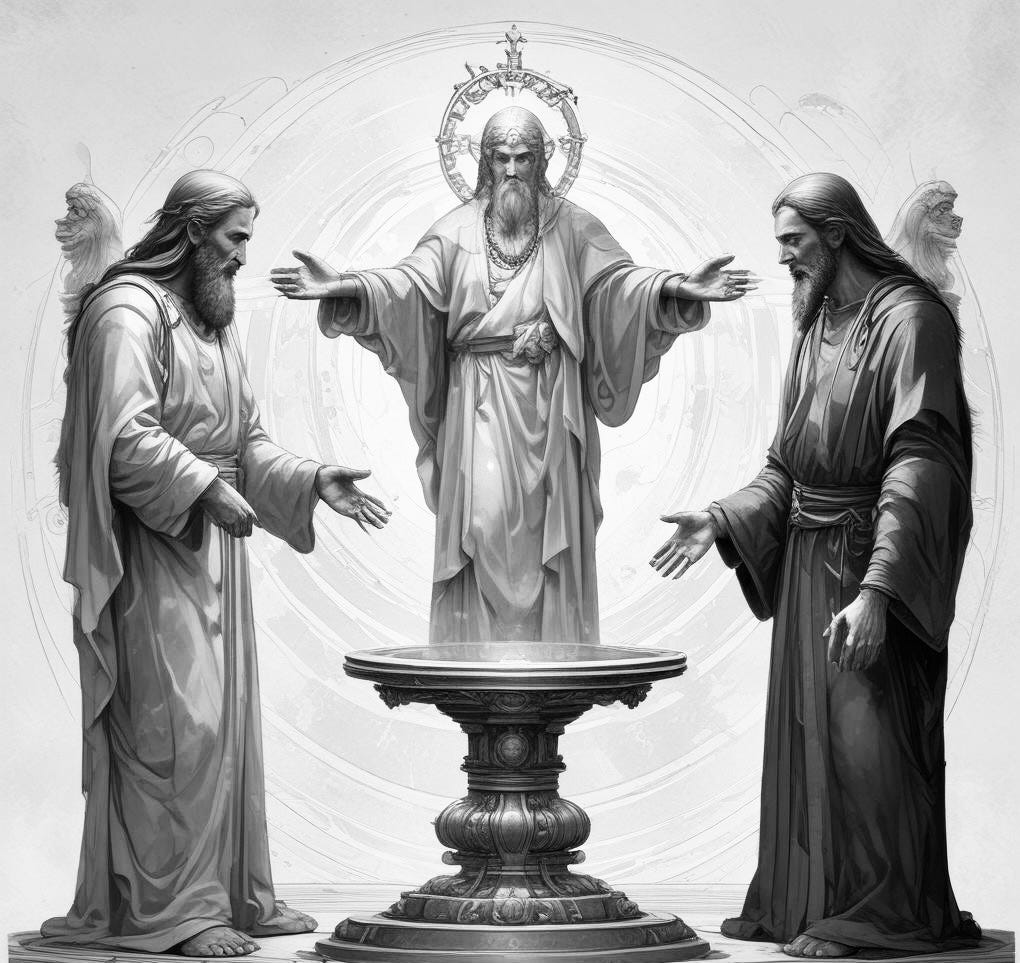In this new protocol for addressing relational issues among believers, Jesus empowers believers to take decisive action concerning a careless sin perpetrator, with the assurance that God Himself endorses their decisions. This represents a pivotal shift, affirming all believers' priestly and judicial roles rather than reserving such authority for an exclusive class of priests, kings, and judges, as was common in the Old Testament.
It is worth considering why we often revert to Old Testament frameworks when Christ has introduced a new order. In this teaching, Jesus entrusts decision-making to two or three individuals, no longer requiring the Urim and Thummim but instead relying on the Holy Spirit’s guidance within the framework of Scripture. He assures that decisions made in unity, under the Spirit’s leading, are ratified by heaven. Such authority demands a profound sense of responsibility, careful discernment, and a commitment to justice and restoration.
It is crucial to recognize that God’s presence is not contingent upon the physical gathering of two or three individuals. The God who existed before creation and hovered over the waters before humanity was formed is not bound by human conditions or locations. Instead, Jesus highlights His people's spiritual authority and unity, affirming that when they come together in agreement, God’s presence empowers their actions.
This profound truth about God’s presence and His affirmation of unity should not be trivialized or reduced to a routine pre-service declaration as people enter a church. Doing so diminishes the significance of Jesus’ teaching, turning a dynamic promise into a hollow ritual. Instead, this passage is a call to active unity, intentional discernment, and reliance on the Holy Spirit as we engage in justice, reconciliation, and restoration in the body of Christ.
Jesus consistently upholds a timeless principle seen throughout Scripture: God desires unity among His people to fulfill His purposes. From the harmony of the Garden of Eden to the division at the Tower of Babel, the beauty of Psalm 133, and now in Matthew 18, the consistent message is clear—unity is essential.
When two or three gather in unity to pray, seek God’s will, and exercise spiritual authority, they represent heaven on earth. Their agreement reflects the very essence of the Lord’s Prayer: “Thy kingdom come, Thy will be done, on earth as it is in heaven.” This divine partnership invites heaven’s power and purposes into our earthly realities, fulfilling God’s design for His people.


